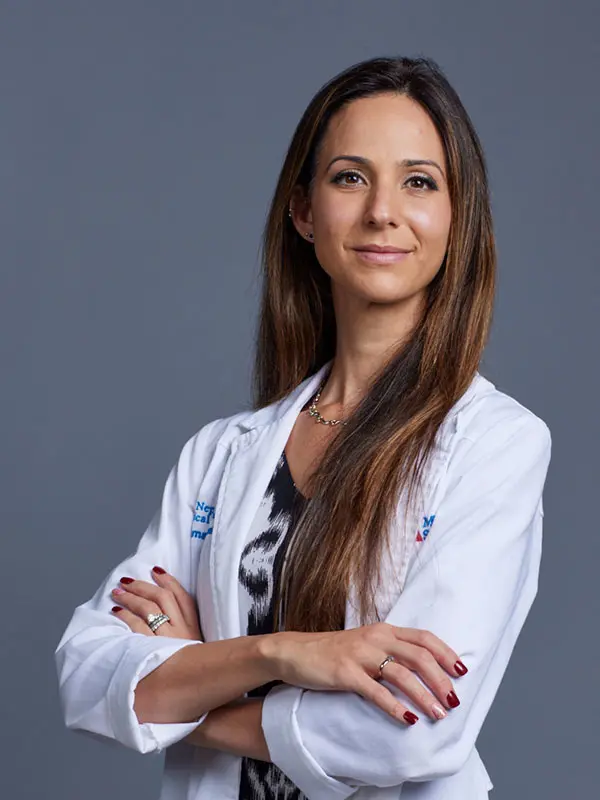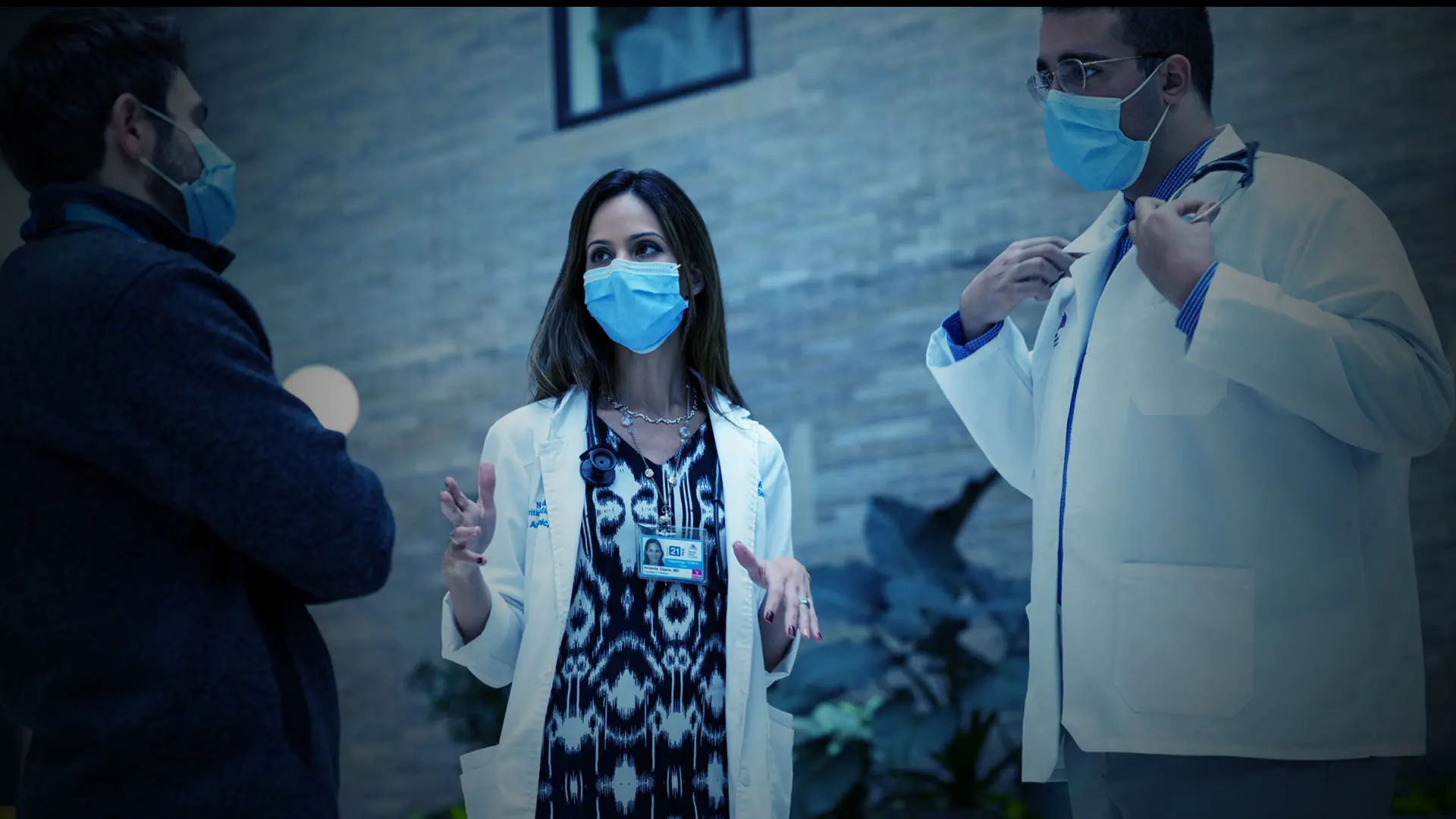A critically ill patient. A resulting acute kidney injury (AKI) or even kidney failure. And a struggle between the intensive care unit (ICU) and the consulting nephrologist to determine the best course of treatment. This scenario is all too familiar to Amanda Dijanic Zeidman, MD.
“These patients are extraordinarily complex,” says Dr. Dijanic Zeidman, Assistant Professor of Medicine (Nephrology) at the Icahn School of Medicine at Mount Sinai. “Sometimes the right course of action is tricky to decipher, and the consulting teams may have different thoughts than the ICU team regarding management. My training helps in understanding the perspective of both sides. It helps bridge any potential communication barriers and, together, a joint decision can be made in the best interest of the patient.”
Although nephrologists have long consulted in ICUs, Dr. Dijanic Zeidman represents a new generation of critical care nephrology, having earned a double degree in nephrology and critical care—the first Icahn Mount Sinai graduate to complete these fellowships as an integrated track. That training is enabling her to ensure optimal outcomes for critically ill patients with AKI or kidney failure.
“Having an extensive understanding of the fundamentals of nephrology such as fluid stewardship, electrolyte disorders, acid-base disturbances, and everything AKI-related—from how to stop its progression to when to administer continuous renal replacement therapy or hemodialysis—makes me a better intensivist,” Dr. Dijanic Zeidman says. “And understanding systems physiology, especially in its most obscure state in the critically ill, makes me a better nephrologist.”
Dr. Dijanic Zeidman, who estimates she spends 75 percent of her time in cardiac critical care, is applying her training and expertise to position Mount Sinai as a leader in critical care nephrology education, care, and research. Her first undertaking toward meeting that objective is equipping a new generation of Icahn Mount Sinai nephrology fellows with the necessary knowledge to meet the challenges of managing ICU patients who present with, or develop, AKI or kidney disease. “Whether our fellows ultimately decide to be double boarded or pure nephrologists, the goal is to ensure they are fully prepared to consult and collaborate on any ICU-level patient,” Dr. Dijanic Zeidman says.
Through a combination of didactics, joint chart reviews, bedside assessments, and her own intensivist experience, Dr. Dijanic Zeidman is introducing fellows to the unique physiological factors that come into play when consulting on patient care in each of Mount Sinai’s nine specialized ICUs. “For example, a patient in a cardiothoracic ICU requires a different approach to blood pressure targets, volume management, and fluids than would a patient in a neurological or medical ICU,” she explains. “Knowing these differences will enable our fellows to take a tailored approach to care based on distinct patient phenotypes and achieve positive outcomes.”
Feedback from fellows suggests that Dr. Dijanic Zeidman’s critical care training is improving confidence and preparedness during ICU rotations. They have indicated that they feel like they are part of the team and are learning how to make intelligent, unit-specific recommendations regarding patient care. “This is knowledge the fellows will carry with them into future practice, particularly those fellows who practice at institutions where they are responsible for all levels of patient care, or are responsible for every consult,” she says. “They will know how to interpret various data points, imaging studies, and hemodynamic variables. They will also understand how multiple forms of extracorporeal life support work, and will easily apply their nephrology principles to better outcomes for very sick individuals.”
Dr. Dijanic Zeidman plans to expand training with the addition of a point-of-care ultrasound training program that will enable fellows to complete bedside hemodynamic assessments—influencing important management decisions. She is also looking to introduce citrate anticoagulation protocols to improve upon some quality metrics surrounding the administration of continuous renal replacement therapy.
One of her passions is extracorporeal life support, in particular studying extracorporeal blood purification techniques such as cytokine and/or pathogen removal using the newest filter technologies. “My overall goal is to bring cutting-edge technology, which is exploding in the field of critical care nephrology, to Mount Sinai over the next 10 years. This will help us stay current, innovative, and provide the absolute best care to the sickest of patients in the hospital,” she says.
Featured

Amanda Dijanic Zeidman, MD
Assistant Professor of Medicine (Nephrology)
